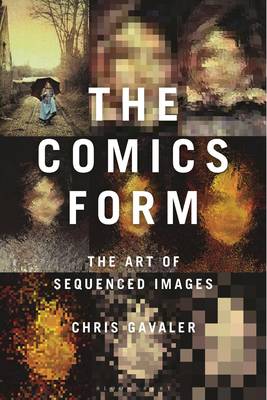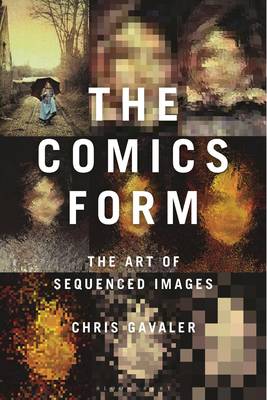
- Retrait gratuit dans votre magasin Club
- 7.000.000 titres dans notre catalogue
- Payer en toute sécurité
- Toujours un magasin près de chez vous
- Retrait gratuit dans votre magasin Club
- 7.000.0000 titres dans notre catalogue
- Payer en toute sécurité
- Toujours un magasin près de chez vous
Description
Answering foundational questions like "what is a comic" and "how do comics work" in original and imaginative ways, this book adapts established, formalist approaches to explaining the experience of reading comics. Taking stock of a multitude of case studies and examples, The Comics Form demonstrates that any object can be read as a comic so long as it displays a set of relevant formal features. Drawing from the worlds of art criticism and literary studies to put forward innovative new ways of thinking and talking about comics, this book challenges certain terminology and such theorizing terms as 'narrate' which have historically been employed somewhat loosely.
In unpacking the way in which sequenced images work, The Comics Form introduces tools of analysis such as discourse and diegesis; details further qualities of visual representation such as resemblance, custom norms, style, simplification, exaggeration, style modes, transparency and specification, perspective and framing, focalization and ocularization; and applies formal art analysis to comics images. This book also examines the conclusions readers draw from the way certain images are presented and what they trigger, and offers clear definitions of the roles and features of text-narrators, image-narrators, and image-text narrators in both non-linguistic images and word-images.Spécifications
Parties prenantes
- Auteur(s) :
- Editeur:
Contenu
- Nombre de pages :
- 248
- Langue:
- Anglais
Caractéristiques
- EAN:
- 9781350245952
- Date de parution :
- 25-01-24
- Format:
- Livre broché
- Format numérique:
- Trade paperback (VS)
- Dimensions :
- 156 mm x 234 mm
- Poids :
- 349 g

Les avis
Nous publions uniquement les avis qui respectent les conditions requises. Consultez nos conditions pour les avis.






